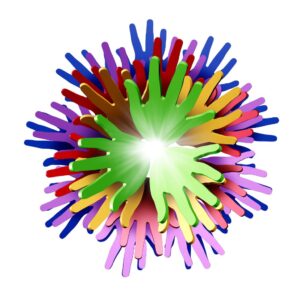In professional work environments, conflicts are not mere stumbling blocks; they are pivotal moments for growth and transformation. While conflict resolution strategies abound, one foundational element stands out: self-awareness. In this article, we delve into the symbiotic relationship between conflict resolution and self-awareness, unveiling how cultivating self-awareness serves as the linchpin for navigating workplace conflicts with finesse and fostering lasting harmony.
The Dynamics of Conflict Resolution
Conflict resolution is more than just mediating disputes; it’s a multifaceted process encompassing communication, empathy, and problem-solving. It involves acknowledging differing perspectives, addressing underlying issues, and fostering collaboration to reach mutually beneficial outcomes. However, the effectiveness of conflict resolution hinges significantly on the level of self-awareness exhibited by the parties involved.
The Role of Self-Awareness
Self-awareness is the bedrock upon which effective conflict resolution is built. It involves introspection, understanding one’s emotions, thoughts, strengths, and weaknesses, and recognizing how these factors influence interactions with others. When individuals possess a high level of self-awareness, they are better equipped to navigate conflicts with empathy, emotional intelligence, and a collaborative mindset.
Let’s dive into situations between a person who self-aware vs a person that is lacking in self-awareness.
When receiving constructive feedback, for example, during a performance review, a self-aware employee receives feedback on areas where they can improve. They listen attentively, acknowledge their strengths and weaknesses, and express gratitude for the constructive feedback. They reflect on the feedback afterward, considering how they can incorporate it into their development plan to enhance their performance.
In the same situation, a person lacking self-awareness becomes defensive and dismissive upon receiving constructive feedback. They may attribute their shortcomings to external factors or blame others for their mistakes. Instead of considering the feedback as an opportunity for growth, they perceive it as criticism and may react negatively, hindering their professional development.
When dealing with Conflict, a self-aware team member, during a team meeting, notices tension arising between two colleagues due to conflicting opinions on a project. They step in to facilitate the discussion, acknowledging each person’s perspective and encouraging open dialogue. They remain composed and empathetic, seeking to understand the underlying concerns and find common ground to resolve the conflict amicably.
In the same scenario, a person lacking self-awareness may exacerbate the conflict by adopting a confrontational or dismissive attitude. They may fail to recognize their own contribution to the tension or how their words and actions are impacting the situation. Instead of fostering understanding and collaboration, they escalate the conflict further, damaging team cohesion and productivity.
In providing Leadership, a self-aware individual or team leader regularly seeks feedback from their team members to assess their leadership style and effectiveness. They recognize their strengths and areas for improvement and openly communicate with their team about their goals and expectations. They demonstrate humility and vulnerability, creating a supportive environment where team members feel valued and empowered.
In contrast, a person lacking self-awareness may exhibit authoritarian leadership tendencies, making decisions without considering input from their team or acknowledging their own limitations. They may struggle to adapt their leadership approach to different situations or personalities, leading to disengagement and resentment among team members.
In each of these scenarios, the self-aware individual demonstrates the ability to recognize their own emotions, behaviors, and impact on others, enabling them to navigate workplace challenges with empathy, integrity, and effectiveness. Conversely, the person lacking self-awareness may struggle to understand their own motivations and reactions, leading to conflict, resistance, and diminished performance in the workplace.
What are the specific characteristics of self-aware individuals?

- Recognizing Triggers and Emotions
Self-aware individuals are attuned to their emotional triggers – the situations or behaviors that provoke strong emotional reactions. By recognizing these triggers, individuals can preemptively address potential conflicts and manage their emotional responses more effectively. Rather than reacting impulsively, they can respond thoughtfully, fostering a conducive environment for constructive dialogue.
- Understanding Communication Style
Communication lies at the heart of conflict resolution, and self-awareness plays a pivotal role in this domain. Individuals with a keen sense of self-awareness understand their communication styles, preferences, and biases. This awareness allows them to adapt their communication approach to better connect with others, facilitating clearer understanding and minimizing misunderstandings during conflicts.
- Cultivating Empathy and Perspective-Taking
Empathy is a cornerstone of effective conflict resolution, and self-awareness serves as its catalyst. Self-aware individuals possess a deep understanding of their own emotions, enabling them to empathize with the perspectives and feelings of others. By acknowledging their own vulnerabilities and experiences, they can cultivate empathy and engage in perspective-taking, fostering mutual understanding and empathy amidst conflicts.
- Navigating Personal Biases and Assumptions
We all harbor biases and assumptions based on our past experiences and beliefs. Self-awareness entails acknowledging these biases and questioning our assumptions during conflicts. By remaining open-minded and receptive to alternative perspectives, self-aware individuals can transcend personal biases and approach conflicts with objectivity and fairness, paving the way for collaborative problem-solving.
Practical Strategies for Cultivating Self-Awareness in Conflict Resolution
- Self-Reflection
Self-reflection practices like journaling and mindfulness are essential for enhancing self-awareness, fostering personal growth, and understanding oneself better. Journaling involves writing down thoughts and experiences, providing clarity on emotions and behaviors. For example, someone may realize through journaling that their frustration at work stems from unresolved issues rather than external factors. Similarly, mindfulness exercises promote being present without judgment, helping individuals become aware of thoughts and emotions. Through practices like meditation, they learn to observe thoughts without being overwhelmed, leading to conscious responses. Regular engagement in these practices deepens self-awareness, enabling individuals to make choices aligned with their values and aspirations, ultimately facilitating personal growth and fulfillment.
- Feedback and Development
Providing individuals with constructive feedback from peers, supervisors, and mentors offers valuable insights into their strengths, weaknesses, and areas for improvement. This feedback acts as a mirror, reflecting aspects of performance and behavior that may not be immediately evident. For example, a peer might praise strong communication skills in a team project while suggesting improvements in time management. Supervisors conduct performance reviews, discussing achievements and areas needing development, guiding individuals in setting goals for growth. Mentors offer insights on career progression, advising on skill development and networking opportunities. By receiving feedback from diverse sources, individuals gain a comprehensive understanding of their abilities, facilitating informed decisions about personal and professional development. This fosters a culture of continuous learning, empowering individuals to reach their full potential.
- Training and Education
Offering workshops and training programs on self-awareness and conflict resolution equips individuals with practical strategies for effectively navigating conflicts. These programs provide structured environments for participants to explore their interpersonal dynamics and enhance self-understanding through activities like personality assessments and reflective exercises. Simultaneously, conflict resolution training teaches valuable skills such as active listening and assertive communication through interactive scenarios. By participating, individuals develop not only a deeper understanding of themselves but also the ability to address conflicts constructively with empathy and problem-solving. Ultimately, these programs empower individuals to foster healthier relationships, contribute to collaborative work environments, and enhance organizational success.
Self-awareness serves as the cornerstone of effective conflict resolution, empowering individuals to navigate conflicts with empathy, emotional intelligence, and collaboration. By cultivating self-awareness among employees and embracing its transformative power, organizations can foster a culture of understanding, respect, and harmony in the workplace, propelling towards success amidst challenges and opportunities alike.





